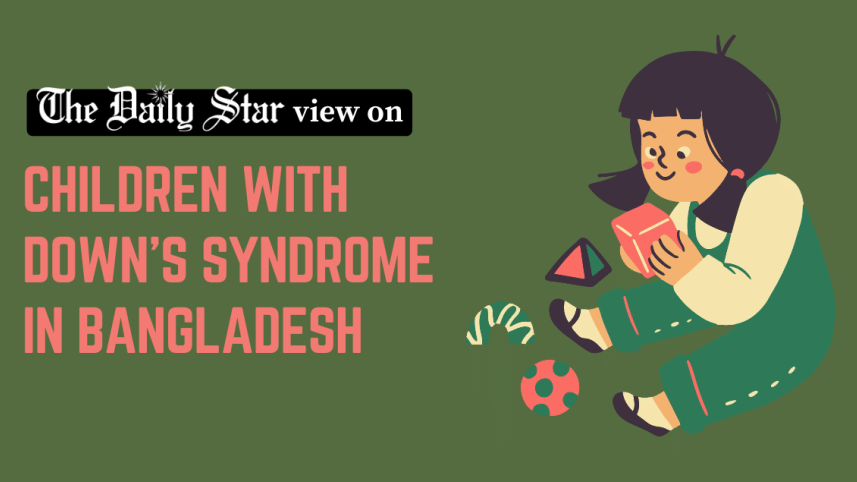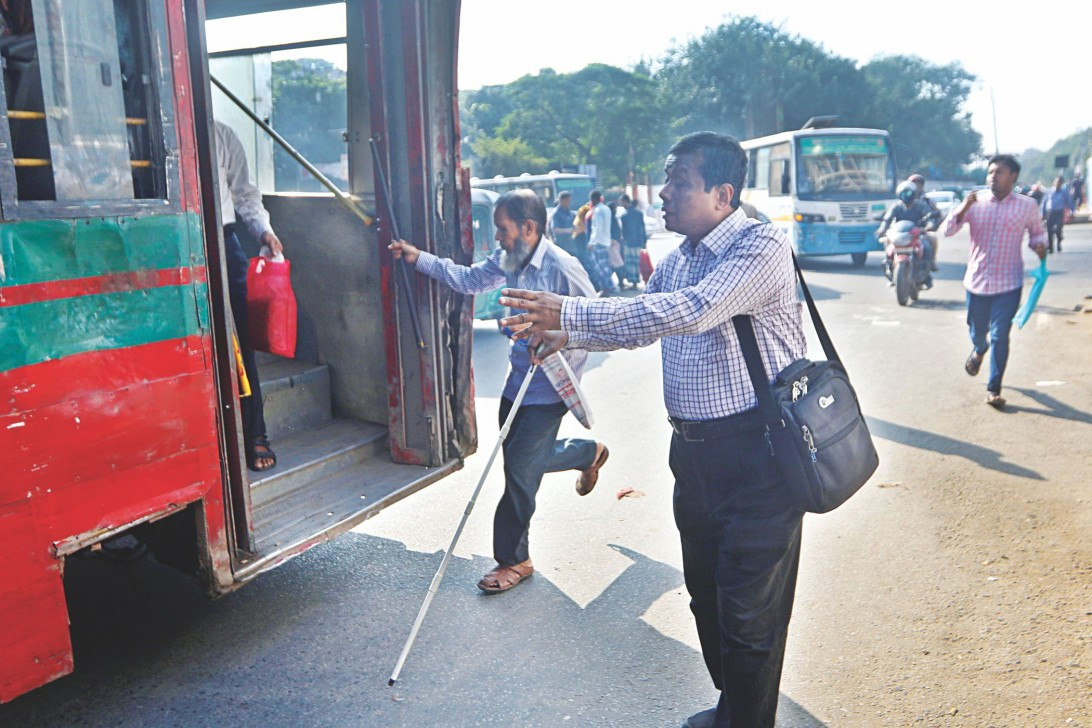Children with Down’s syndrome deserve better

It is unfortunate that we as a society have been unable to create an enabling environment for children suffering from various health and developmental issues, including Down's syndrome. Down's syndrome occurs when a person is born with an extra chromosome. Although they may appear to be like everyone else, their abilities can vary and they may require special care.
According to the government's Disability Identification Survey, 6,028 individuals in Bangladesh have so far been diagnosed with Down's syndrome. However, due to a lack of awareness among parents and society in general, it is possible that the actual number is higher. And this is a major problem as early detection can prove vital in providing the care required by children with Down's syndrome and making their lives easier, particularly in relation to their schooling.
Like many other conditions, Down's syndrome continues to be stigmatised in Bangladesh due to lack of awareness and understanding. Therefore, parents themselves are often reluctant to seek out the additional support their children require. But even when they do, the support system being offered by the government in particular, and society in general, is also woefully subpar. For example, although there are a number of schooling services in Dhaka for children with such conditions, these are not sufficient. The situation is far worse in rural areas where such schools are almost non-existent. The number of trained teachers who are qualified to help these children flourish is also very low.
Because they tend to be different, children with Down's syndrome may sometimes struggle to integrate with their peers. However, it is often the case that they may excel more in certain fields and are naturally talented in them. That is why it is essential for society to provide them with the care and nurturing conditions they require, so that they can contribute more to our nation. Hence, the government should increase the number of special schools and other facilities for children with such conditions and thus help them live an active and meaningful life.



 For all latest news, follow The Daily Star's Google News channel.
For all latest news, follow The Daily Star's Google News channel. 


Comments